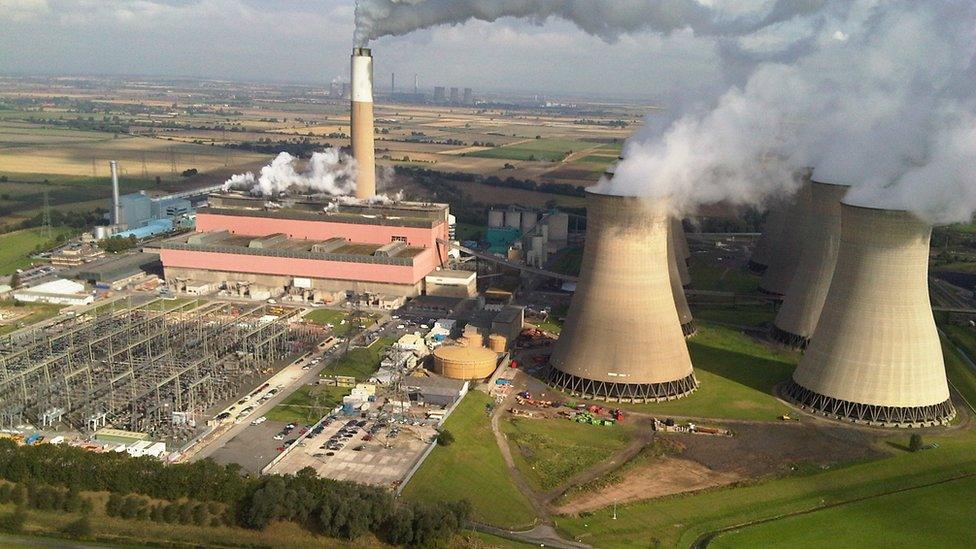'Chimney stack was part of our village'
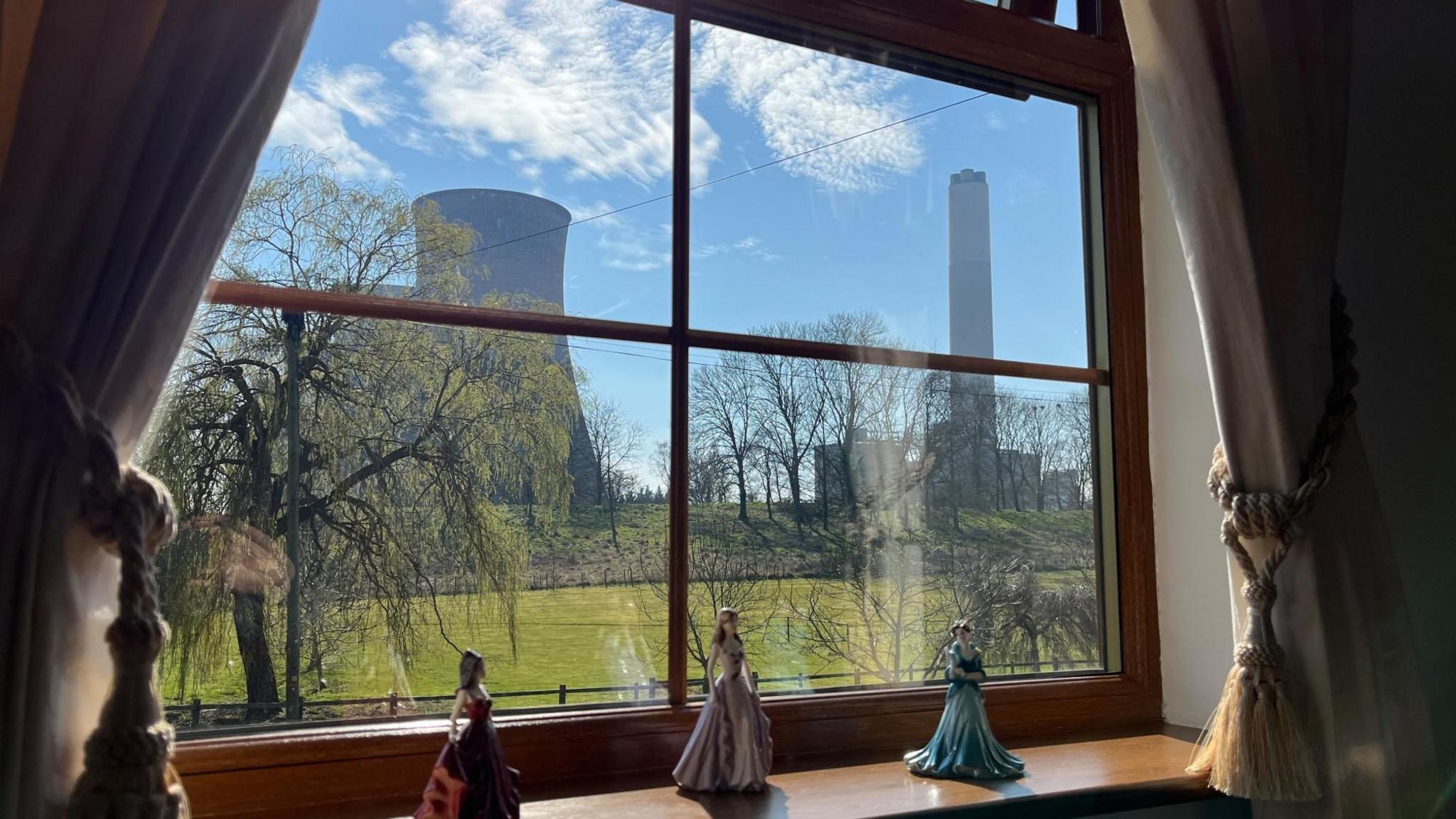
The view from Alf Jaworski's bedroom window will no longer contain the chimney on the right, with this photo being taken prior to demolition
- Published
It has towered over the landscape for decades and for many, it was a symbol they were nearly home.
But as the main chimney of Cottam Power Station was brought down in a controlled explosion on Thursday, residents living nearby admitted they will miss the landmark.
"It's a part of us, and it's a part of the village," says Alf Jaworski, whose home in Cottam, Nottinghamshire, is on the outskirts of the plant.
He added: "We are the forgotten village as it is now. People think 'oh Cottam? Never heard of it', but say power station and they'll go 'oh yeah, that place'."
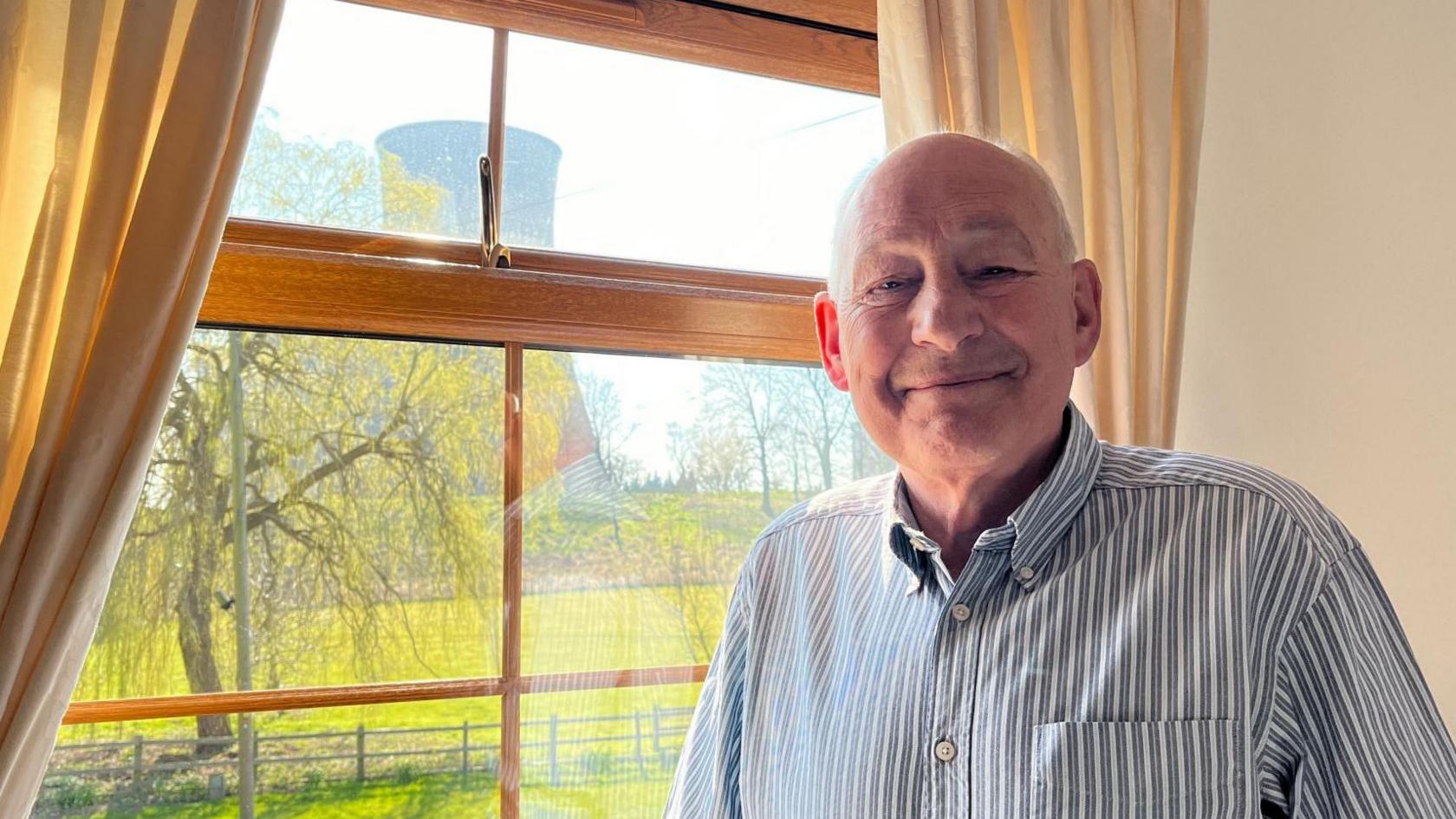
Mr Jaworski said his granddaughter called the main chimney a "pencil"
Mr Jaworski has lived in the village for seven years and said he grew to love the power station as a fixture in his life.
"You could see it in the distance [when driving home]," he said. "It just made you feel that you're nearly at the end of your journey."
The 72-year-old said he was never bothered by the plant before it closed in 2019, with the odd rumbling of lorries being the only noteworthy disruption.
He added: "When it's gone people said that you'll have a nice view, it'll all be open, but that's not the point is it?"
Moment chimney is demolished at power station
Cottam Power Station opened in 1968 and at its peak employed 750 people, although the headcount had reduced to 140 by the time of its closure.
At its height it produced 2,000 megawatts - enough to power more than 3.5 million homes.
Gary Atkinson, 62, spent more than half of his life working at the facility.
He joined the team after replying to a newspaper job advert.
He started cleaning floors and worked his way up to be part of the maintenance and operations team.
Mr Atkinson, who was present on the plant's last day, said: "There was only a handful of jobs to do... but I kept thinking I shall not walk down this road any more, or go into the canteen, or be twiddling this knob or pressing this button.
"It was a strange feeling, but the closure was not unexpected."
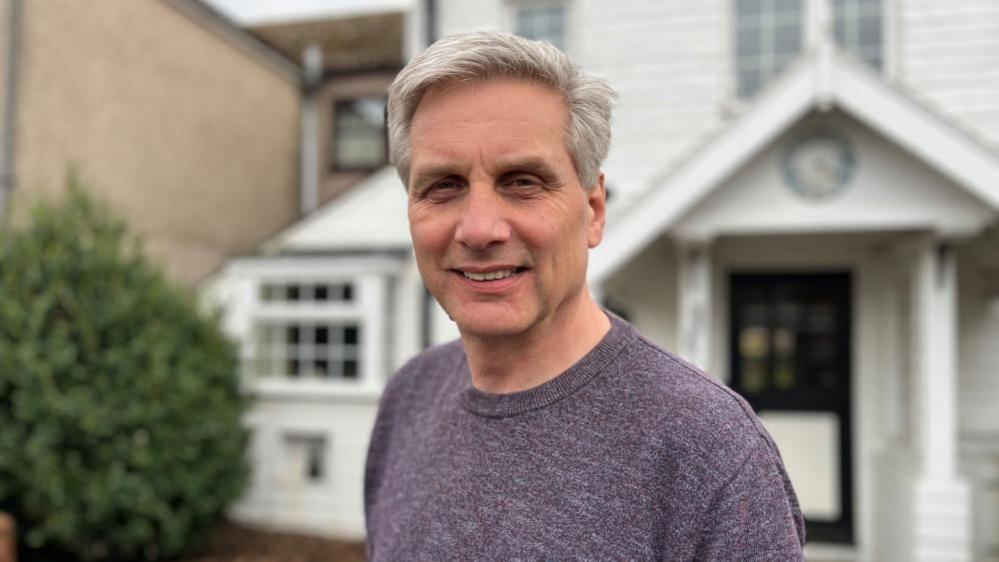
Gary Atkinson, who worked at the plant for 32 years, used to call the cooling towers "cloud factories"
Mr Atkinson, whose home overlooks both Cottam Power Station and West Burton A power station, said he used to prepare for work by simply looking out his window.
"You could almost know what to expect, because you could see the plumes of smoke coming out the stack," he said. "You could see which unit was generating and which one wasn't."
He said it would allow him to start thinking about problems that he would need to fix before setting off for work.
However, six years on from leaving the plant for the final time, he said the chimney's destruction left him feeling "nostalgic".
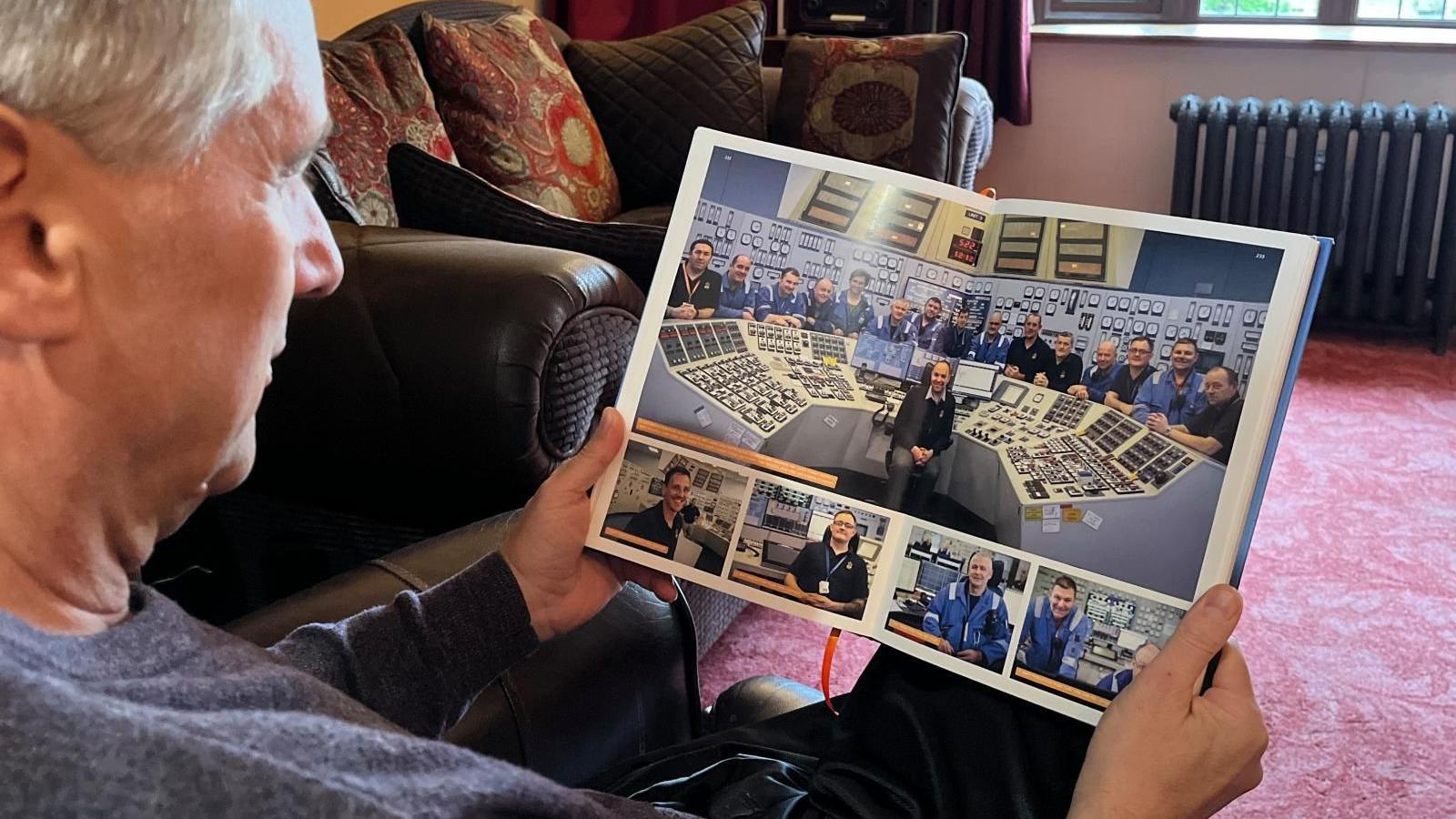
Photos of Mr Atkinson alongside his team appear in a memory book given out to all former employees
"It was the best place to work in this area," he said.
"It's been the major part of my life, my working life. It was a decently paid job with a decent pension, so it's basically funded my lifestyle ever since I got there."
However, despite the sadness brought on by the demolition work, Mr Atkinson acknowledged the power station's time was up.
"I can't say I don't miss them - they were living, breathing things. And now they're not. They're just sat there waiting to be knocked down," he added.
At the time of its closure, owner EDF Energy blamed "challenging market conditions" for the move.
A number of power stations have closed in recent years, with Ratcliffe-on-Soar power station in Nottinghamshire shutting down last year.
That closure marked the end of 142 years of UK coal power, as the nation became the first G7 member to completely phase coal out from its electricity mix.
Get in touch
Tell us which stories we should cover in Nottingham
Follow BBC Nottingham on Facebook, external, on X, external, or on Instagram, external. Send your story ideas to eastmidsnews@bbc.co.uk, external or via WhatsApp, external on 0808 100 2210.
Related topics
- Published20 March
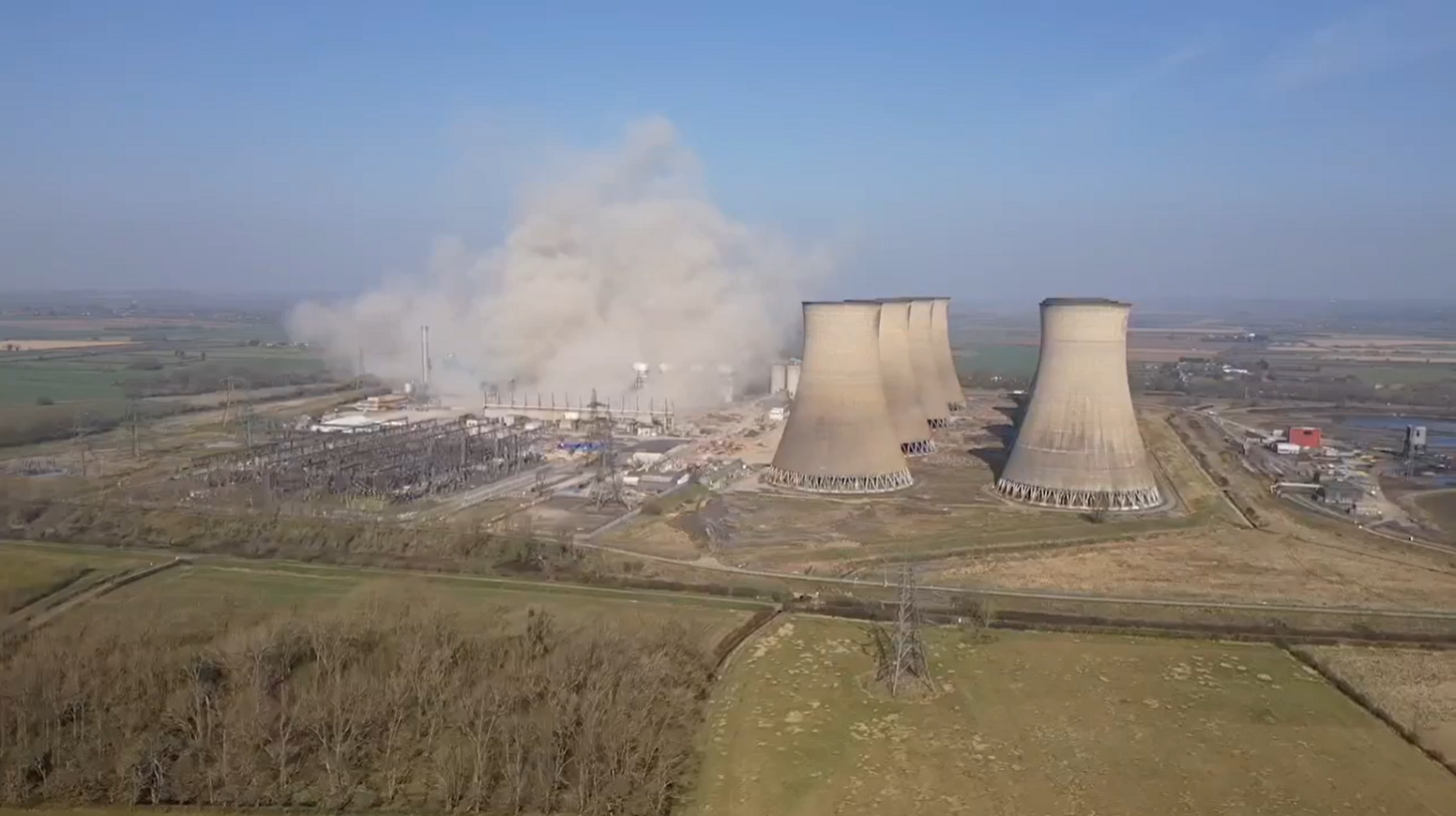
- Published30 September 2019
